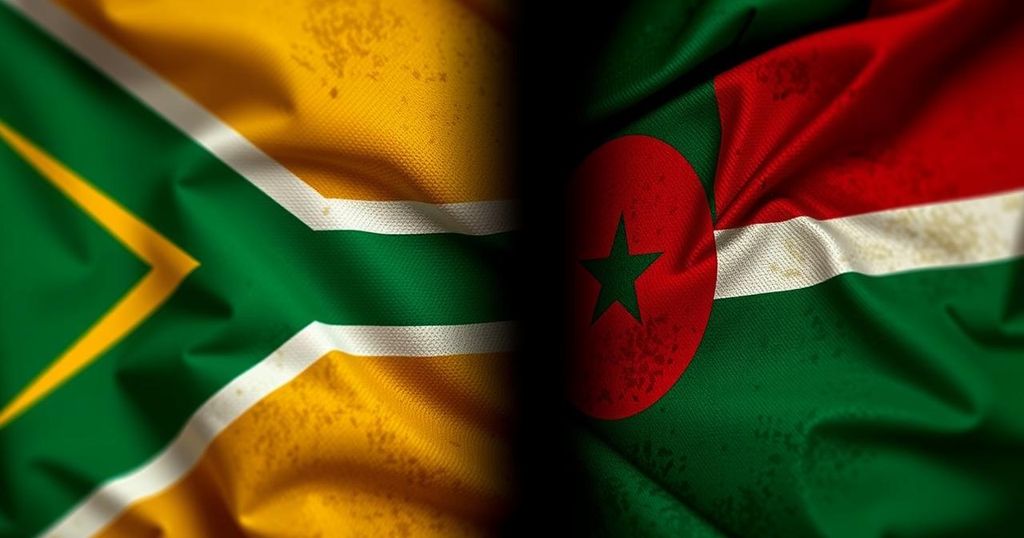South Africa Closes Border with Mozambique Amid Escalating Violence

South Africa has closed its border with Mozambique due to worsening post-election violence, following protests against the allegedly rigged elections favoring the Frelimo party. Human rights organizations report at least 20 deaths, and the government’s response includes possible military action against demonstrators. Political tensions are rising, impacting regional stability and civil liberties.
South Africa has temporarily closed its border with Mozambique due to escalating post-election violence in the neighboring country. Following the initial reopening of the border earlier this week, authorities quickly reversed this decision as clashes between police and demonstrators intensified. The situation has become dire, with Amnesty International reporting at least 20 fatalities and numerous injuries and arrests since protests commenced in late October, sparked by opposition discontent over the recent election results. Protesters, organized by opposition leaders, took to the streets in response to allegations of widespread electoral rigging by the ruling Frelimo party, which has maintained power for nearly five decades. In the capital, Maputo, police utilized teargas to disperse crowds, while videos circulated online depicted demonstrators, including young supporters of opposition leader Venancio Mondlane, engaging in protests and obstructing roads with debris. Amid the unrest, a closure of the border was deemed necessary after 15 Mozambican border officials fled to South Africa seeking asylum. Mike Masiapato, commissioner of South Africa’s Border Management Agency, described the distressing scenes of looting occurring at the border post. In light of the violence, Minister of International Relations Ronald Lamola stated, “South Africa expresses concern at the outbreak of incidents of post-electoral violence and regrets the loss of lives and destruction of property.” The Mozambican government’s response to the unrest has included threats to deploy military forces against demonstrators, accusing them of attempting to unsettle a democratically elected administration. Human rights organizations have condemned the government’s measures as extremely repressive, marking one of the most severe crackdowns experienced in recent years. Additionally, internet services in Mozambique have faced disruptions, exacerbating the volatile situation surrounding the protests and the political climate as a whole.
The current unrest in Mozambique primarily stems from allegations of electoral fraud following the October 9 elections, where the Frelimo party, led by Daniel Chapo, secured over 70% of the votes. The elections have been contested by opposition parties, including Renamo and Podemos, raising tensions in the country. As protests escalated, the government has adopted stringent measures to suppress dissent, marking a struggle between citizens striving for political accountability and a regime determined to maintain control amidst growing discontent.
In conclusion, the situation between South Africa and Mozambique reflects the broader implications of political instability and civil unrest. The closure of the border serves as a precautionary measure in response to escalating violence, which has resulted in multiple casualties and allegations of electoral malpractice. The international community watches with concern as authorities grapple with calls for accountability and the safety of citizens amidst governmental repression.
Original Source: guernseypress.com







